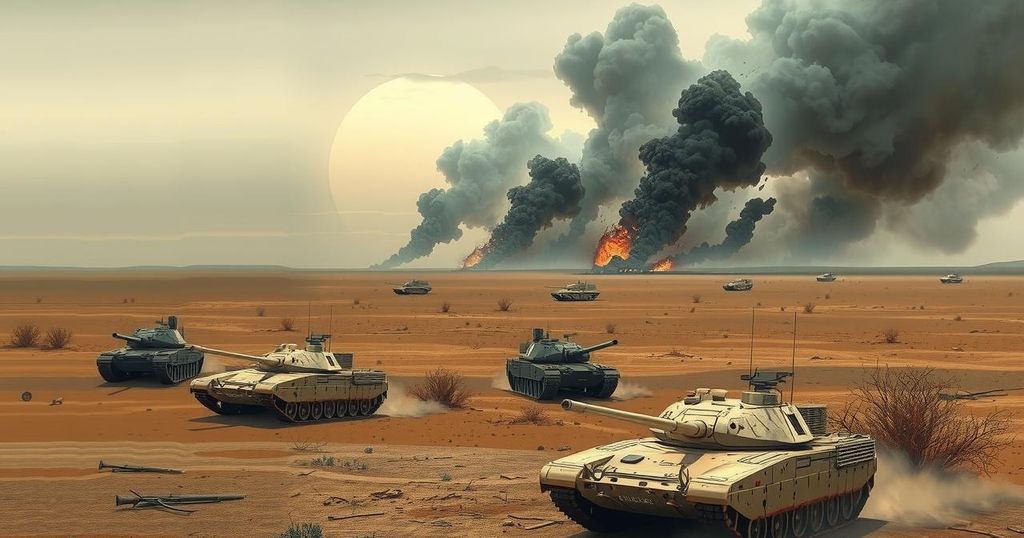Current Dynamics and Future Prospects of Sudan’s Civil War
Sudan’s civil war persists towards a critical phase with significant military advances in Khartoum. The conflict has resulted in immense humanitarian suffering, with over 28,000 fatalities and millions displaced. The military’s control may lead to the establishment of rival administrations, especially following the RSF’s creation of a parallel government. The situation demands urgent international attention as the humanitarian crisis exacerbates.
The civil war in Sudan, now nearing two years in duration, is intensifying at a crucial moment. The ongoing conflict has resulted in tens of thousands of deaths and the displacement of millions, leading to a humanitarian crisis marked by widespread famine. Recent military advancements have reportedly regained control of Khartoum from the paramilitary Rapid Support Forces (RSF), although the RSF has yet to confirm this loss.
The conflict erupted in April 2023 after tensions between the military and RSF escalated. Previously, the leaders of both factions had collaborated to undermine a transition to civilian governance following a 2019 uprising. This deterioration ignited violence, resulting in significant casualties, with estimates of at least 28,000 dead, although the true figure may be higher, and over 14 million individuals displaced.
The military’s claims of success in Khartoum may indicate a new phase in the war, potentially bifurcating Sudan into territories controlled by the military and the RSF. Military leader Gen. Abdel-Fattah Burhan has not indicated a willingness to pursue meaningful peace negotiations. Simultaneously, Gen. Mohamed Hamdan Dagalo, leader of the RSF, appears committed to continuing the fight, maintaining control over much of western Sudan, particularly in Darfur.
A recent development is the RSF’s establishment of a parallel government, formalized through a charter signed in Kenya. This initiative could escalate tensions, creating competing administrations and further entrenching Sudan’s division. The RSF’s charter advocates for a decentralized democracy, which resonates with numerous communities within Sudan seeking autonomy from the capital’s authority.
The RSF’s origins trace back to the Janjaweed militias, infamous for perpetrating violence against Darfur populations under Omar al-Bashir’s regime. Current allegations against the RSF include committing war crimes, prompting sanctions from the Biden administration due to accusations of genocide. The RSF denies these charges, mirroring the military’s own claims of innocence regarding various forms of abuse and misconduct.
In summary, the conflict in Sudan remains unresolved, with military gains in Khartoum likely signaling a deeper entrenchment of divisions between rival factions. The establishment of a parallel government by the RSF introduces new complexities to the conflict and underscores the ongoing humanitarian crisis. Without concerted peace efforts, the situation may foster further instability and violence across Sudan.
Original Source: www.newsday.com




Post Comment